
 Flash News
Flash News
Hell in the Gjadri camp, 45 attempted injuries and violent protests
Albanian man who dived into river to save his two deceased children from drowning gets tattooed on their faces
Why World War III is 'speaking', and the Albanian PM Rama is silent
Iran faces near-total internet blackout
Accident on the Grand Ring Road, two cars collide
The Guardian: Why the fall of the Iranian regime would be a serious blow to Russia
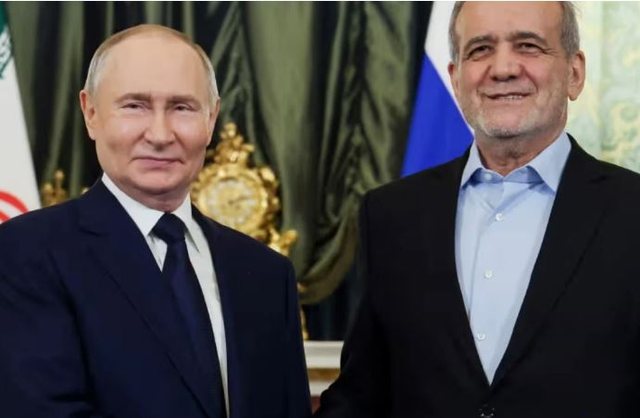
When foreign policy officials from Russia and Iran gathered in Moscow for the conference “Russian-Iranian Cooperation in a Changing World,” no one expected that the title would be so topical and challenging.
At the table near the Kremlin, they faced a new reality: the Iranian regime, a key ally of Moscow, is facing its greatest threat in decades.
At a time when Israel and former US President Donald Trump are demanding “unconditional surrender” from Tehran, Moscow is expressing concern about Iran’s fate, while openly acknowledging its limitations in influencing developments on the ground. Experts on Russian-Iranian relations, such as Nikita Smagin, emphasize that Russia is not ready to militarily defend Iran, not wanting to enter into conflict with Israel or the United States.
This approach reflects a cold political logic: Moscow is interested in focusing on the war in Ukraine, avoiding direct involvement in a conflict that could lead to regime change in Tehran. A source close to the Russian Foreign Ministry emphasizes that the Kremlin will not arm Iran or get involved in the conflict, doing everything to encourage the US to return to diplomacy, to preserve relations with the American administration and to avoid a negative turn in the American position towards Ukraine.
However, an Israeli military campaign, supported by the US, that would destroy Iranian economic and military infrastructure would be a major strategic loss for Moscow, more severe than the one it suffered with the fall of the Assad regime in Syria.
In fact, since the beginning of the invasion of Ukraine in 2022, Iran has been an important partner for Russia, supplying it with combat drones and helping to establish a drone factory in the Ural Mountains. Putin has even signed a strategic treaty with Iran for military cooperation and intelligence sharing, however the agreement does not include a clause for mutual military defense.
While Iran has long sought defense systems and fighter jets from Russia, these requests have remained unfulfilled. Due to Moscow's involvement in Ukraine and growing relations with regional actors such as Saudi Arabia, Russia has shown no haste in supporting Iran, especially after strikes on Hezbollah, one of Tehran's key allies.
On the other hand, Moscow has reduced its dependence on Iranian military support by developing its own technologies for mass production of drones.
Although the Israeli attacks are causing tensions, some in Moscow are optimistic about rising oil prices, which are reaching their highest levels in four months, which provides an economic benefit at a time when the war budget is being hurt by falling global energy prices.
In this context, Trump has returned to the spotlight with his focus on the Middle East, leaving Ukraine in the shadows. Russian expert Ruslan Pukhov predicts that this situation will hurt Ukraine the most, distracting global attention and directing American military aid more towards Israel.
Although Russia may benefit from this situation in the short term, the long-term prospects look uncertain. The defeat of the Iranian regime would be a serious strategic and reputational blow to Moscow, jeopardizing its billions in investments in energy and infrastructure projects in Iran.
Unlike other allies with whom Russia has historical and cultural ties, its relationship with Iran is built on shared hostility toward the West and the imposition of sanctions. Experts warn that if the regime in Tehran falls, Russia will have serious difficulties maintaining its position and investments.
In a scenario where the Middle East is dominated by US-backed powers, Russia would suffer a major strategic and political loss.
Essentially, Russia is carefully balancing support for its Iranian ally and the need to avoid worsening relations with the US, while tensions in the Middle East are increasing the risk to Moscow's geopolitical ambitions.
Latest news


Zhulali: EU does not tolerate basic standards, membership is a political process
2025-06-18 22:40:09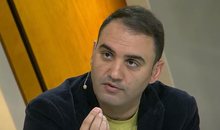
Recount process/Këlliçi: DP seeks 14th mandate in Tirana
2025-06-18 22:11:20
Hell in the Gjadri camp, 45 attempted injuries and violent protests
2025-06-18 21:49:49

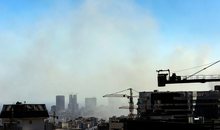
Israel strikes National Police headquarters in Iran, several injured reported
2025-06-18 21:29:11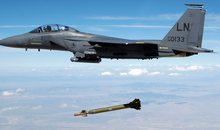

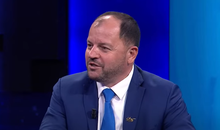
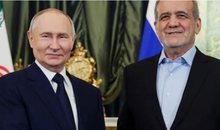

Why World War III is 'speaking', and the Albanian PM Rama is silent
2025-06-18 20:08:03
Avoid drying towels in the sun, here's how to keep them soft
2025-06-18 20:07:53

Cannabis legalization in Albania, new law, old risks
2025-06-18 19:39:54

Pope Leo XIV calls for peace: Advanced weapons are temptations we must reject
2025-06-18 19:22:29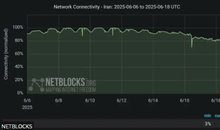
Iran faces near-total internet blackout
2025-06-18 19:07:09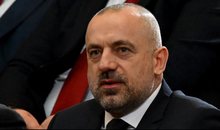




INSTAT: Heart diseases, the leading cause of death in Albania during 2024
2025-06-18 18:05:33



Trump does not rule out the possibility of striking Iran
2025-06-18 17:19:35
Accident on the Grand Ring Road, two cars collide
2025-06-18 17:05:57
Kume: Vote recount increases credibility
2025-06-18 16:59:38


Ndërron jetë ish-futbollisti dhe trajneri i njohur shqiptar
2025-06-18 16:17:02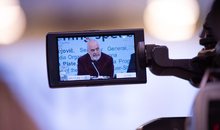
EU calls for "comprehensive reforms" for the media in Albania
2025-06-18 16:06:20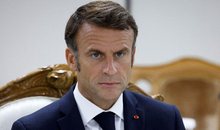
Macron convenes France's Defense and Security Council
2025-06-18 16:04:29
Israeli attacks in the last 24 hours, at least 140 killed in Gaza
2025-06-18 15:58:13
Reflection on Rama's kneeling before Meloni
2025-06-18 15:52:53

Conference League second round draw, Albanian teams learn potential opponents
2025-06-18 15:29:29

Eurostat 2024: Prices in Albania are catching up with EU levels
2025-06-18 15:07:03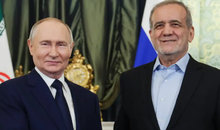
War/ Why is Russia hesitant to help Iran in its conflict with Israel?
2025-06-18 15:00:19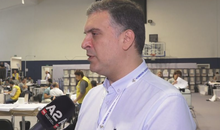
Blushi: Ilir Meta's voice will resound louder than ever in the new Parliament
2025-06-18 14:50:42
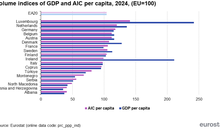


The Electoral College also rejects the DP's complaint for Kukës and Gjirokastra
2025-06-18 14:09:49
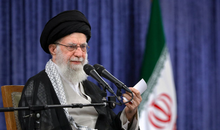

The College rejects the DP's request for invalidation of the elections in Lezha
2025-06-18 13:41:57
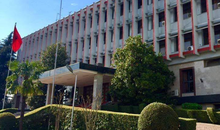
Evacuation of 5 Albanians from Israel, 3 of them arrive in Albania
2025-06-18 13:23:34
Amidst chaos and abuse, is Albania ready to offer sustainable tourism?
2025-06-18 13:01:56

SMILE.al - 5 years of history, the best version of success!
2025-06-18 12:42:25

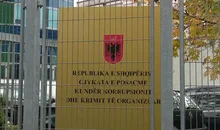

Causes of death in Albania, heart disease leads, suicides increase
2025-06-18 11:47:36



The claim for Jorgo Goro is postponed
2025-06-18 10:59:17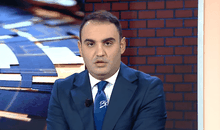

Gave candy and attempted to abuse minor, 60-year-old arrested in Maliq
2025-06-18 10:33:10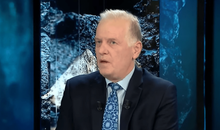
Israel, Iran, us and our world
2025-06-18 10:21:43
Vote recount for Tirana, Ilir Alimehmeti also present in the process
2025-06-18 10:13:14
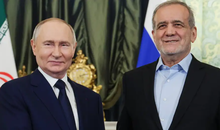
Why is Russia hesitant to help Iran in its conflict with Israel?
2025-06-18 10:00:55
Israel-Iran War/ US Embassy in Jerusalem Temporarily Closed
2025-06-18 09:42:06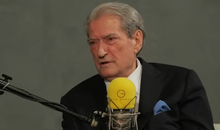
"I wanted to become a writer", Berisha recounts his dream left half-abandoned
2025-06-18 09:33:52
Author of several thefts, thief from Tirana caught in Durrës (NAME)
2025-06-18 09:24:20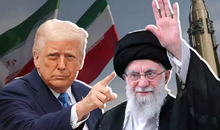

Taksa të larta dhe diskrimin, pse emigrantët po largohen përsëri nga Gjermania?
2025-06-18 09:02:32
Socially dangerous person, 27-year-old arrested in Pogradec
2025-06-18 08:51:39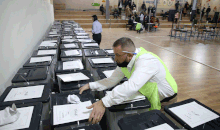
The recount of votes for the Tirana district begins today
2025-06-18 08:37:37

Horoscope, what do the stars have in store for you today?
2025-06-18 08:12:05

Morning Post/ In 2 lines: What mattered yesterday in Albania
2025-06-18 07:45:20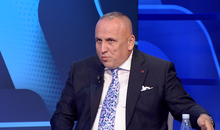

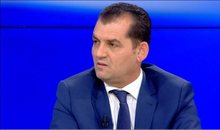
Former prosecutor: Criminal groups are more structured in Albania
2025-06-17 22:02:21



Korça/ A woman comes into contact with electricity
2025-06-17 20:55:40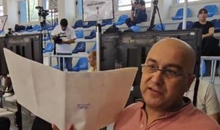

Death makes you neither good nor bad.
2025-06-17 20:38:05
Only 1 in 5 tourists sleep in apartments or hotels
2025-06-17 20:25:16

European Commission proposes complete ban on Russian gas imports
2025-06-17 19:46:58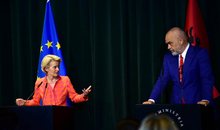
'Serious concern': EU condemns government attacks on SPAK after Veliaj's arrest
2025-06-17 19:36:01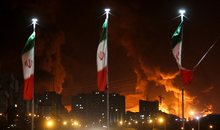
Fuel prices soar amid Israel-Iran tensions
2025-06-17 19:19:12


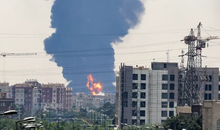
Iranian military says it struck Israeli military intelligence center in Tel Aviv
2025-06-17 18:17:27
The recount of 94 boxes of Gramsh and Peqin is completed
2025-06-17 18:08:47
Source: The world order is destroyed, how is the world being run today
2025-06-17 17:50:28
